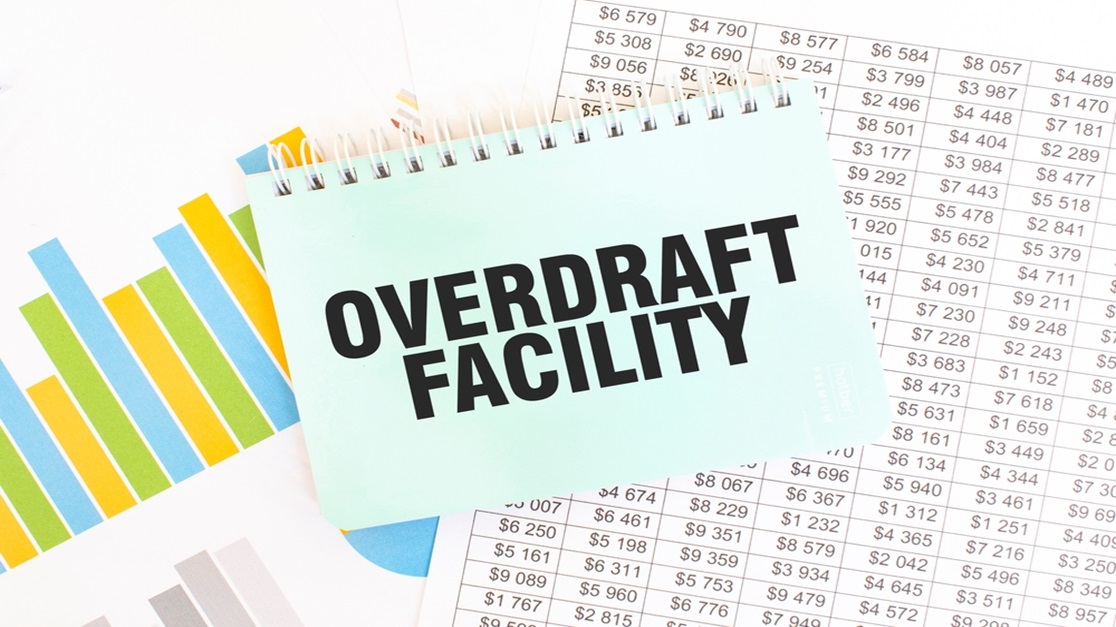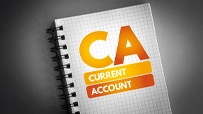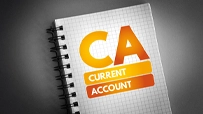Understanding Overdraft Facility in Current Account
Disclaimer: Ujjivan Small Finance Bank does not offer Current Account with overdraft facility. This blog is written for the users to understand about overdraft facility.
July 02, 2025

Cash crunch is not uncommon in businesses. Thanks to overdraft facility in current accounts, you can tackle such emergencies without getting into high-interest debt. An overdraft facility in a current account is one of the most convenient financial tools that provides short-term liquidity without the hassle of applying for a loan. In this comprehensive guide, we will explore what an overdraft facility is, its features, benefits, eligibility, charges, and best practices for using it.
What is an Overdraft Facility in a Current Account?
An overdraft facility is a credit arrangement that allows account holders to withdraw more money than they have in their current account, up to a pre-approved limit. It acts as a financial safety net to cover short-term cash flow gaps or unexpected expenses.
The overdraft limit is determined by the bank, based on factors such as the account holder’s creditworthiness, account history, and income.
Features of Overdraft Facility
Flexibility
You can withdraw funds as needed, up to the limit, and repay at your convenience.
Interest on Used Amount
Interest is charged only on the amount used, not the entire overdraft limit.
Short-Term Solution
Ideal for bridging temporary cash flow gaps.
Customisable Limits
Banks set the overdraft limit based on your financial profile and account activity.
No Collateral (For Some Accounts)
Many banks offer unsecured overdraft facilities, especially for salary accounts or accounts with steady income inflows.
Benefits of Overdraft Facility
Quick Access to Funds
No need to wait for loan approvals during financial emergencies.
Cost-Effective
Interest is levied only on the withdrawn amount, making it cheaper than traditional loans.
Convenient Repayment
Repay when funds are available without strict EMIs.
Improves Liquidity
Helps businesses maintain operations during revenue fluctuations.
Better Financial Planning
Supports timely payments, avoiding penalties or missed opportunities.
Types of Overdraft Facilities
Secured Overdraft
Backed by collateral such as fixed deposits (FDs), property, or other financial assets.
Unsecured Overdraft
Does not require collateral but depends on the borrower’s credit score and account history.
Overdraft Against Salary
Offered to salaried individuals with a steady income.
Business Overdraft
Tailored for businesses to manage working capital and operational expenses.
Interest Rates and Charges
Interest rates for overdraft facilities typically range between 10% to 20% p.a. but vary depending on the bank and whether the overdraft is secured or unsecured. Other charges may include:
- Processing Fees
- Renewal Fees
- Late Payment Penalties
Final Thoughts
An overdraft facility in a current account is a versatile financial tool that provides liquidity during emergencies or cash flow shortages. Whether you are an individual or a business, understanding the terms, charges, and responsible usage can help you make the most of this facility.
Consider discussing your needs with your bank to find the most suitable overdraft plan for you. Always remember, while overdrafts offer flexibility, responsible borrowing is key to maintaining financial health.
Ujjivan SFB does not offer overdraft facility on Current Accounts. However, you can still simplify your business transactions with a Current Account from Ujjivan. Open a Current Account with Ujjivan Small Finance Bank and enjoy multiple benefits.
Disclaimer:
The contents herein are only for informational purposes and generic in nature. The content does not amount to an offer, invitation or solicitation of any kind to buy or sell, and are not intended to create any legal rights or obligations. This information is subject to updation, completion, amendment and verification without notice. The contents herein are also subject to other product-specific terms and conditions, as well as any applicable third-party terms and conditions, for which Ujjivan Small Finance Bank assumes no responsibility or liability.
Nothing contained herein is intended to constitute financial, investment, legal, tax, or any other professional advice or opinion. Please obtain professional advice before making investment or any other decisions. Any investment decisions that may be made by the you shall be at your own sole discretion, independent analysis and evaluation of the risks involved. The use of any information set out in this document is entirely at the user’s own risk. Ujjivan Small Finance Bank Limited makes no representation or warranty, express or implied, as to the accuracy and completeness for any information herein. The Bank disclaims any and all liability for any loss or damage (direct, indirect, consequential, or otherwise) incurred by you due to use of or due to investment, product application decisions made by you on the basis of the contents herein. While the information is prepared in good faith from sources deemed reliable (including public sources), the Bank disclaims any liability with respect to accuracy of information or any error or omission or any loss or damage incurred by anyone in reliance on the contents herein, in any manner whatsoever.
To know more about Ujjivan Small Finance Bank Products Visit:"https://www.ujjivansfb.in"
All intellectual property rights, including copyrights, trademarks, and other proprietary rights, pertaining to the content and materials displayed herein, belong
to Ujjivan Small Finance Bank Limited or its licensors. Unauthorised use or misuse of any intellectual property, or other content displayed herein is strictly prohibited and the same is not intended for distribution to, or use by, any person in any jurisdiction where such distribution or use would (by reason of that person’s nationality, residence or otherwise) be contrary to law or registration or would subject Ujjivan Small Finance Bank Limited or its affiliates to any licensing or registration requirements.
FAQs
1. What is the difference between an overdraft and a loan?
A loan is a lump sum borrowed for a specific purpose with fixed EMIs, whereas an overdraft allows flexible borrowing up to a limit with interest charged only on the used amount.
2. Can individuals avail of an overdraft facility?
Yes, individuals with a current or salary account are eligible for overdraft facilities.
3. Is a credit score required for an overdraft facility?
Yes, a good credit score is crucial, especially for unsecured overdrafts.
4. How is the overdraft limit decided?
Banks determine the limit based on your financial profile, account history, and creditworthiness.
5. What happens if I don’t repay the overdraft?
Non-repayment can lead to penalties, higher interest charges, and negative impacts on your credit score.
6. Can I use an overdraft facility multiple times?
Yes, as long as you stay within the approved limit, you can use and repay repeatedly.
7. How is interest calculated on an overdraft?
Interest is calculated daily on the outstanding amount and charged monthly.
8. Can businesses avail of overdrafts for working capital?
Yes, overdrafts are an excellent tool for businesses to manage working capital and operational costs.
Latest Blogs

Dussehra 2025: How to Win Your Financial Battles with Smart Saving
Dussehra 2025 (also known as Vijayadashami) falls on Thursday, October 2, 2025.

eSIM Scam in India: I4C Warns Mobile Users About Rising Fraud – How to Stay Safe
The Indian Cybercrime Coordination Centre (I4C), a wing of the Ministry of Home Affairs, issued a strong warning to mobile users about the rapid increase in eSIM fraud in India.

How to Link PAN with Aadhaar: Step-by-Step Guide & Consequences of Not Linking
Linking your Permanent Account Number (PAN) with your Aadhaar is no longer just a best practice.

Annual Information Statement (AIS): A Complete Guide for Stress-Free ITR Filing
India’s tax season is in its final stretch.

ITR-1 (Sahaj) Restrictions: Income Sources Not Allowed & Filing Rules
With just a few days left before the 15 September 2025 deadline for filing Income Tax Returns (ITRs) for Assessment Year (AY) 2025-26, many taxpayers are rushing to submit their forms online.





